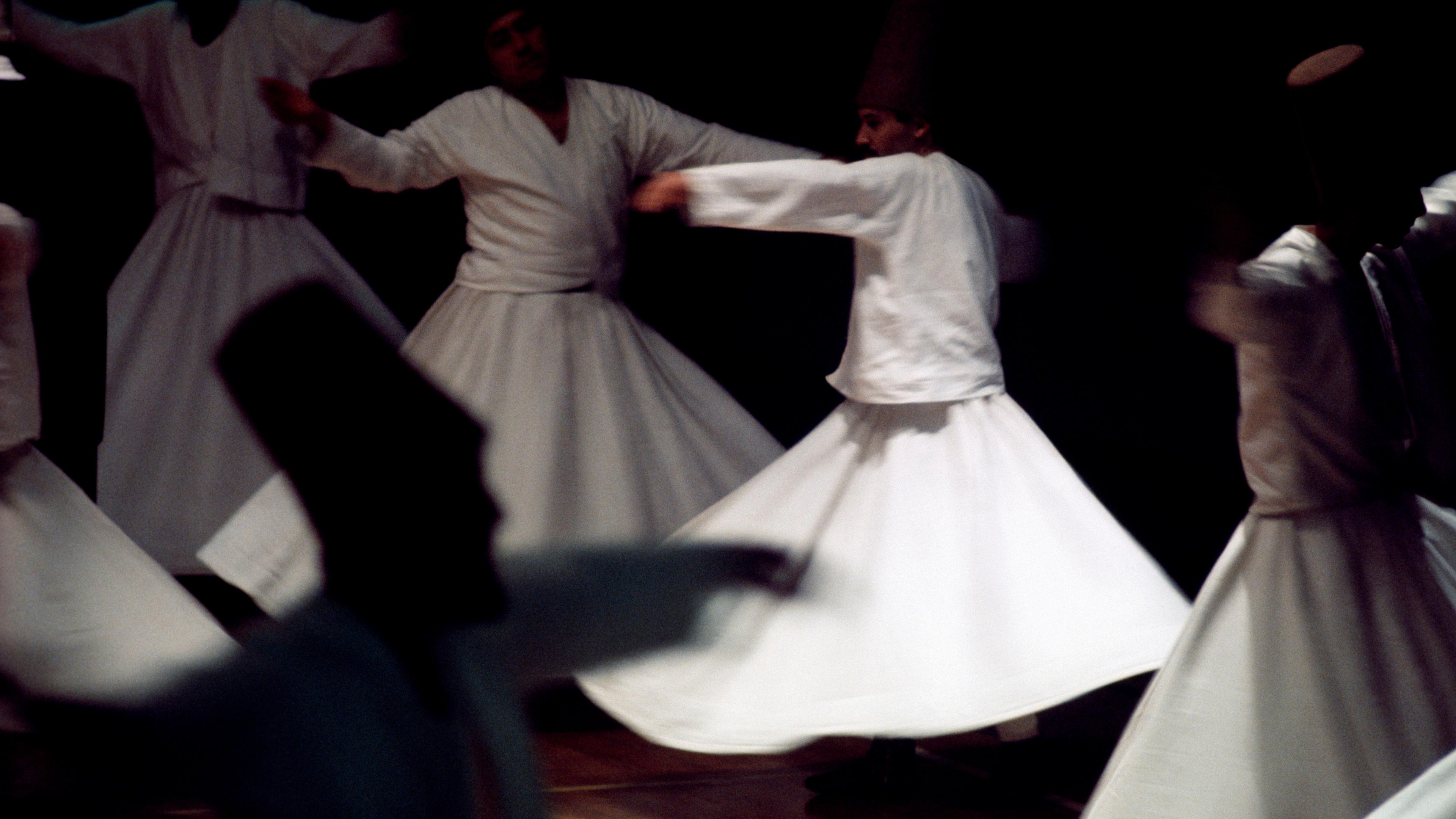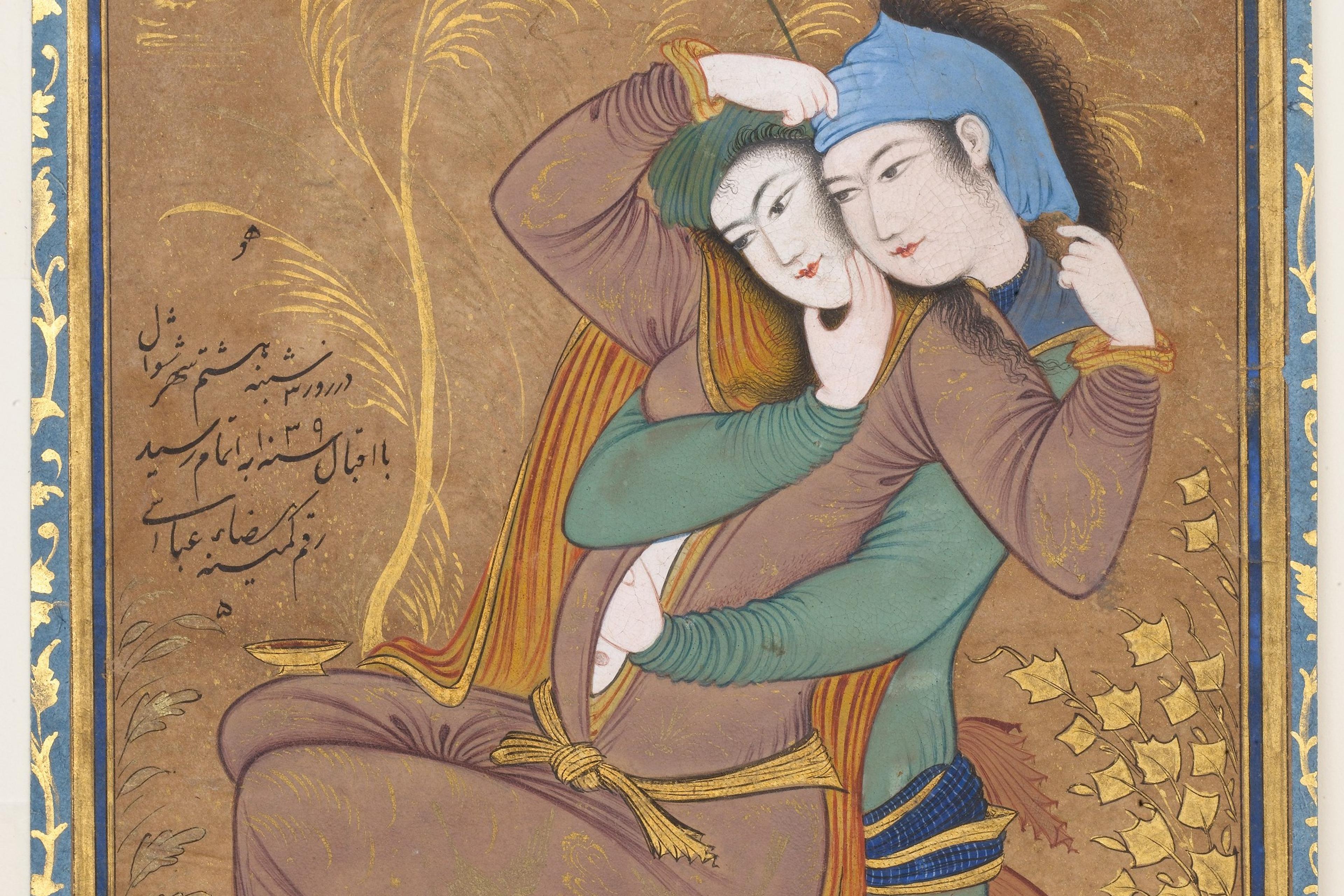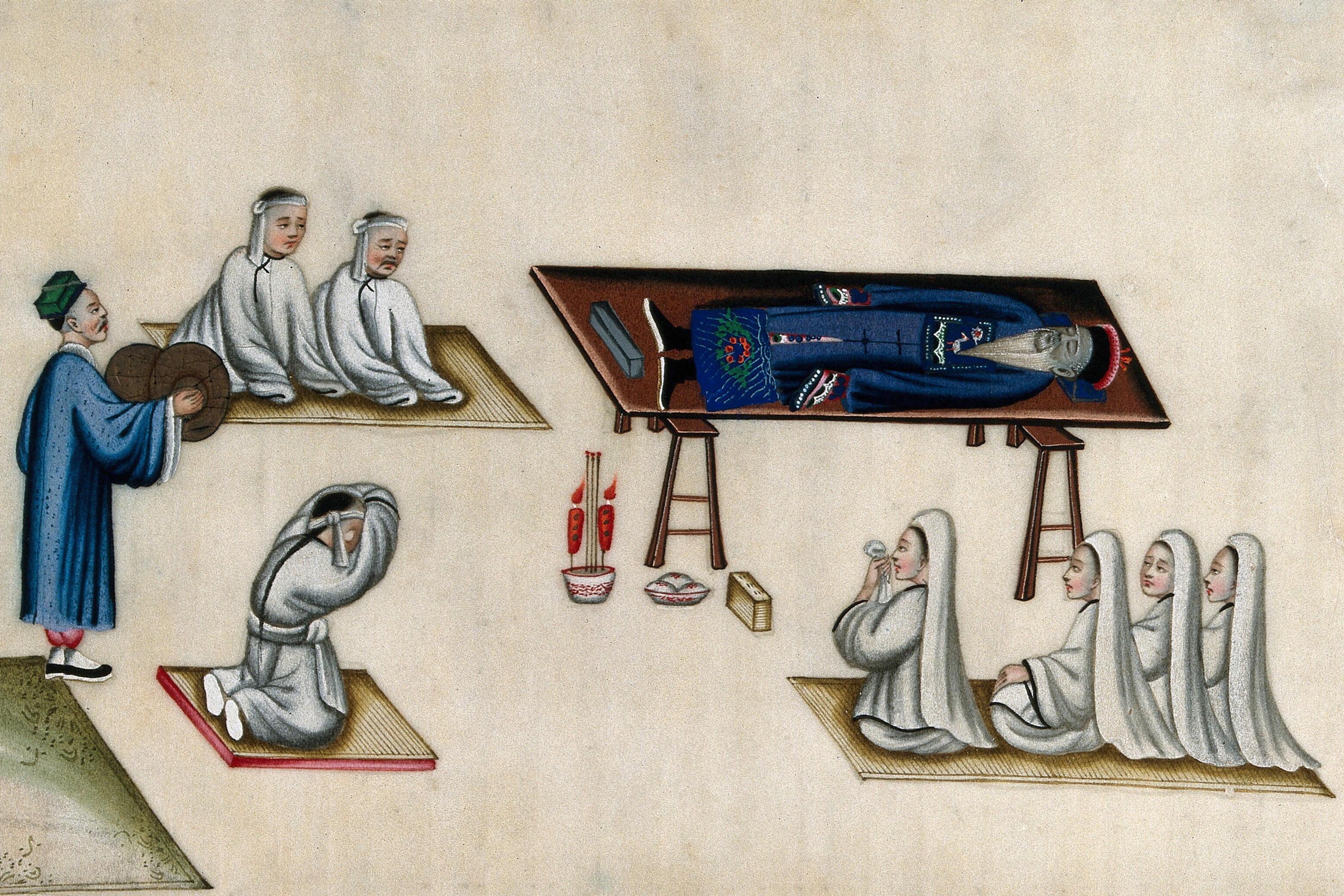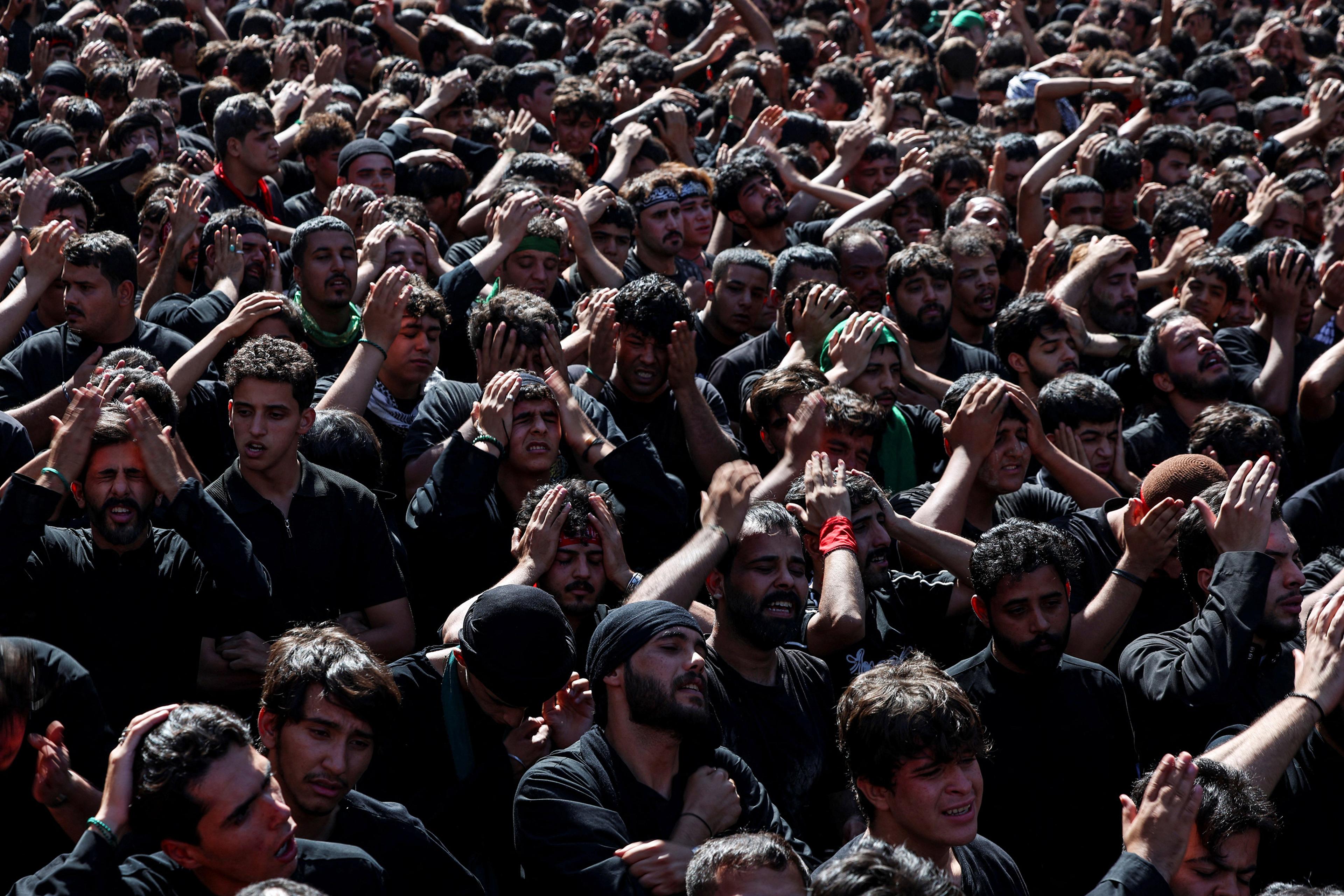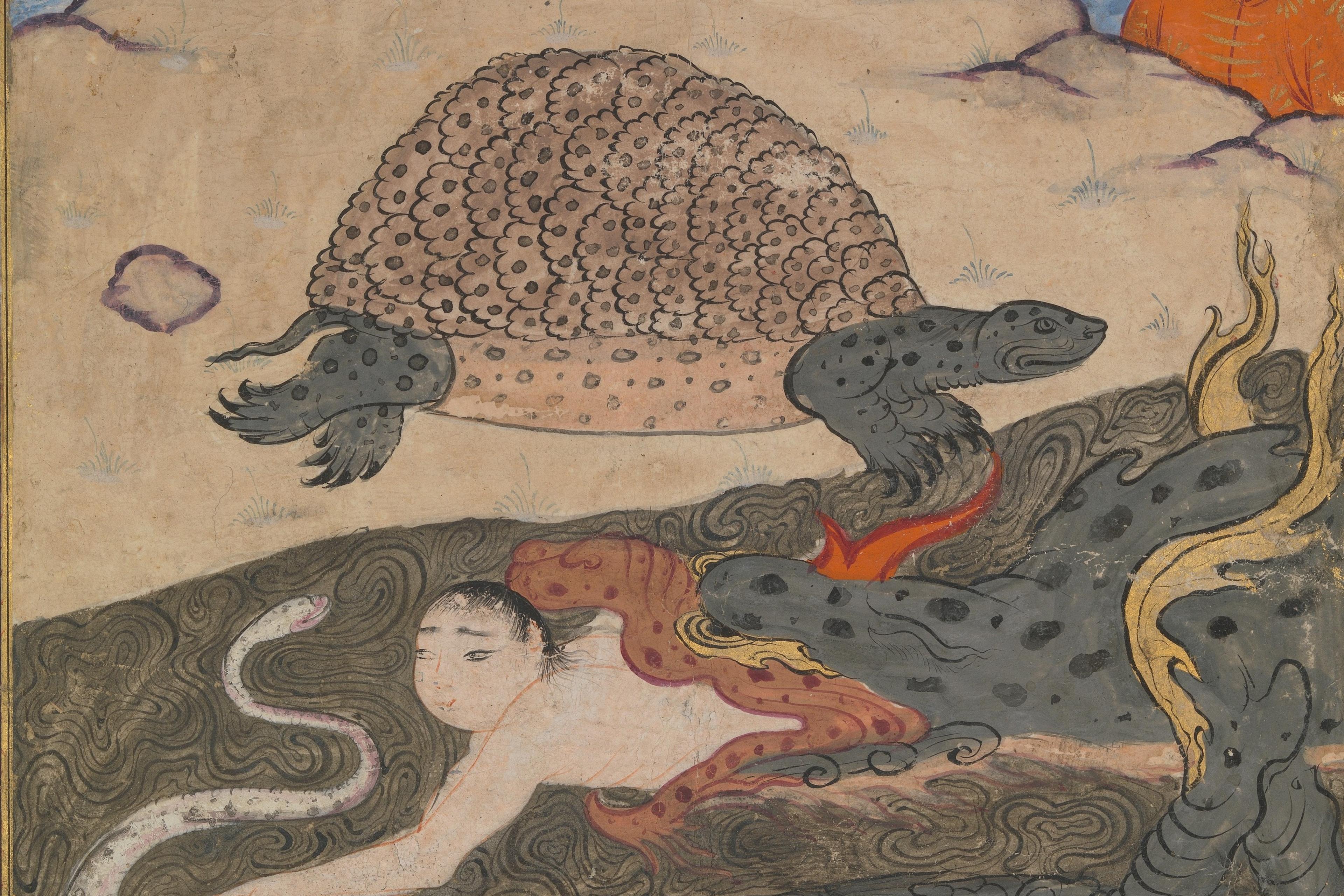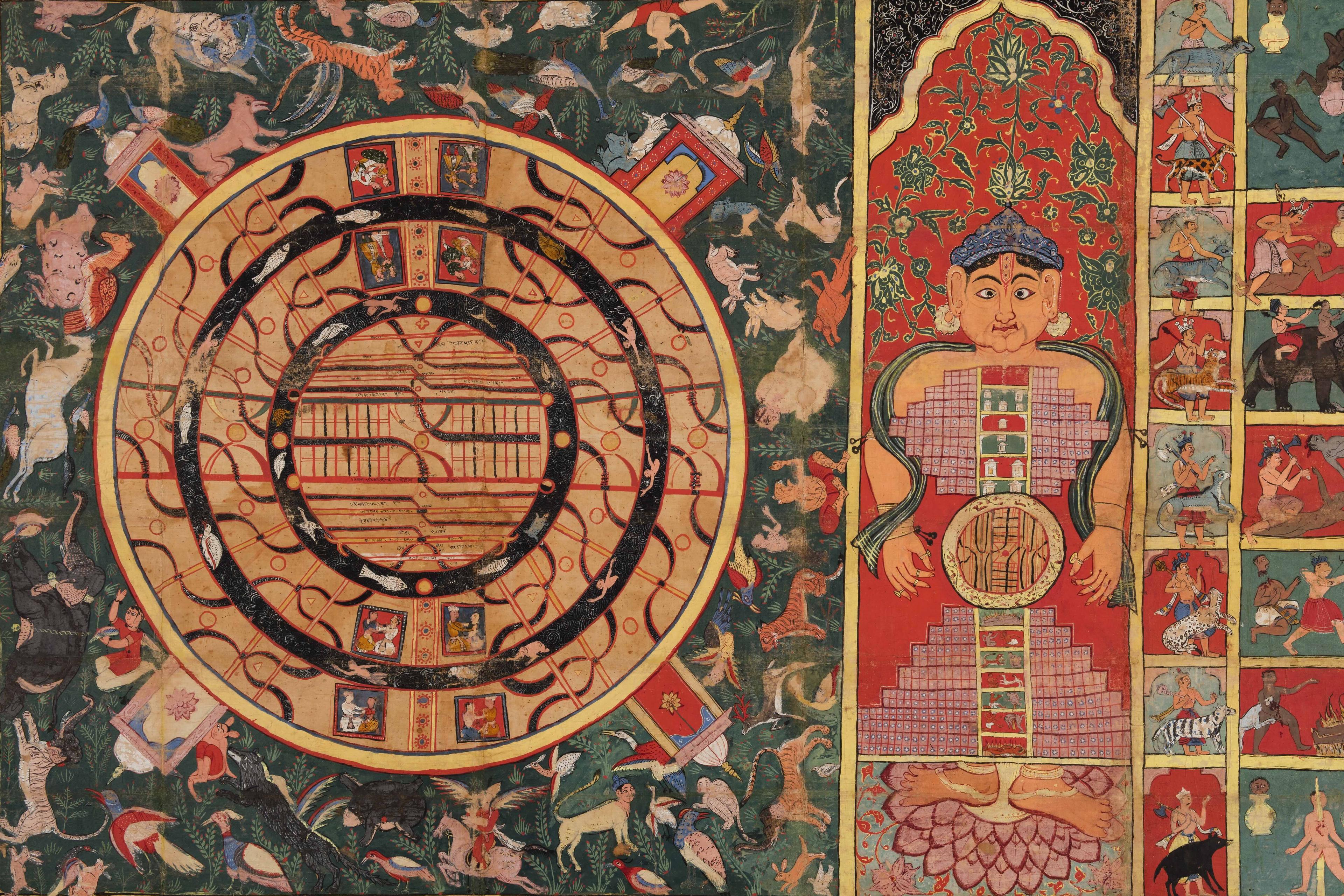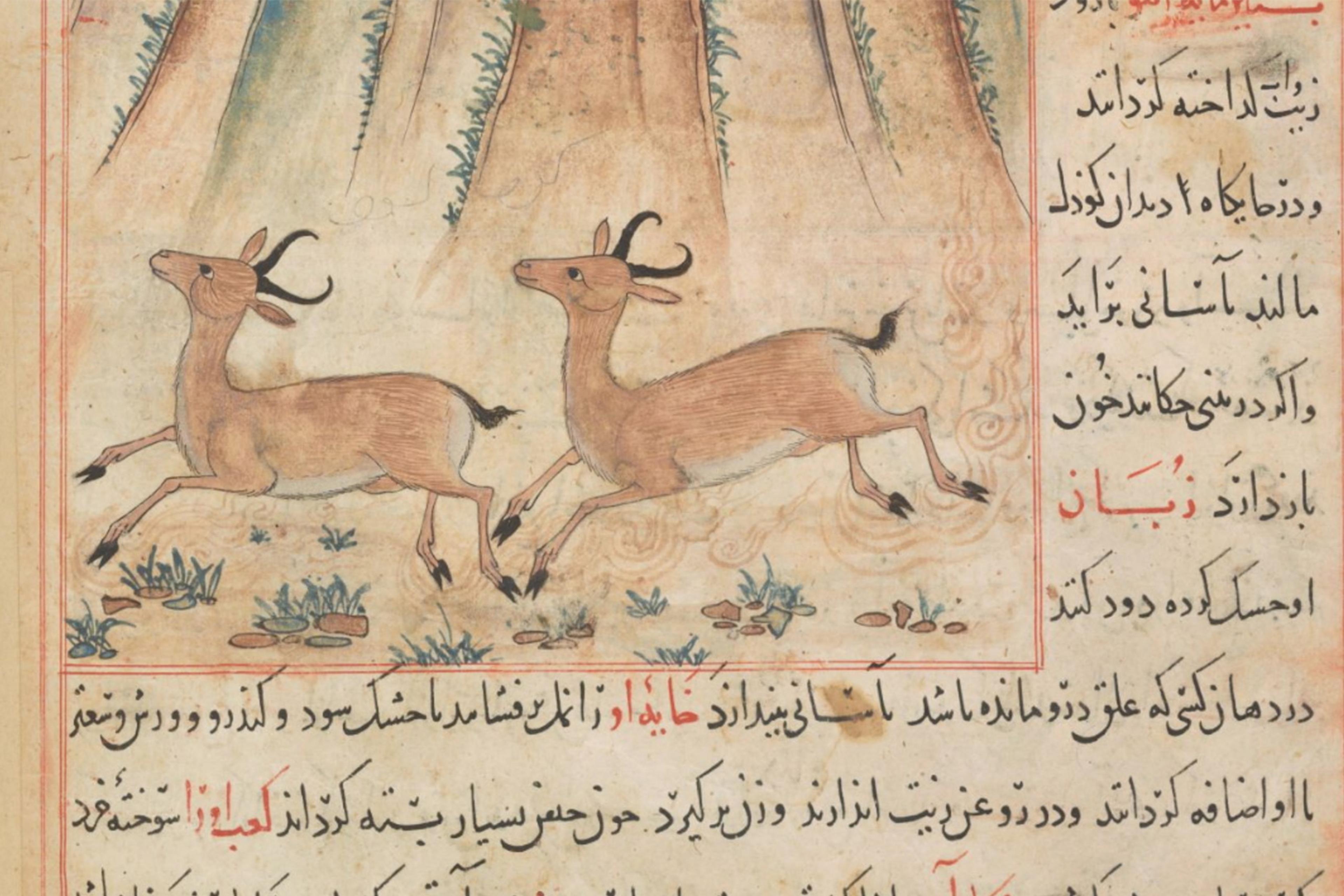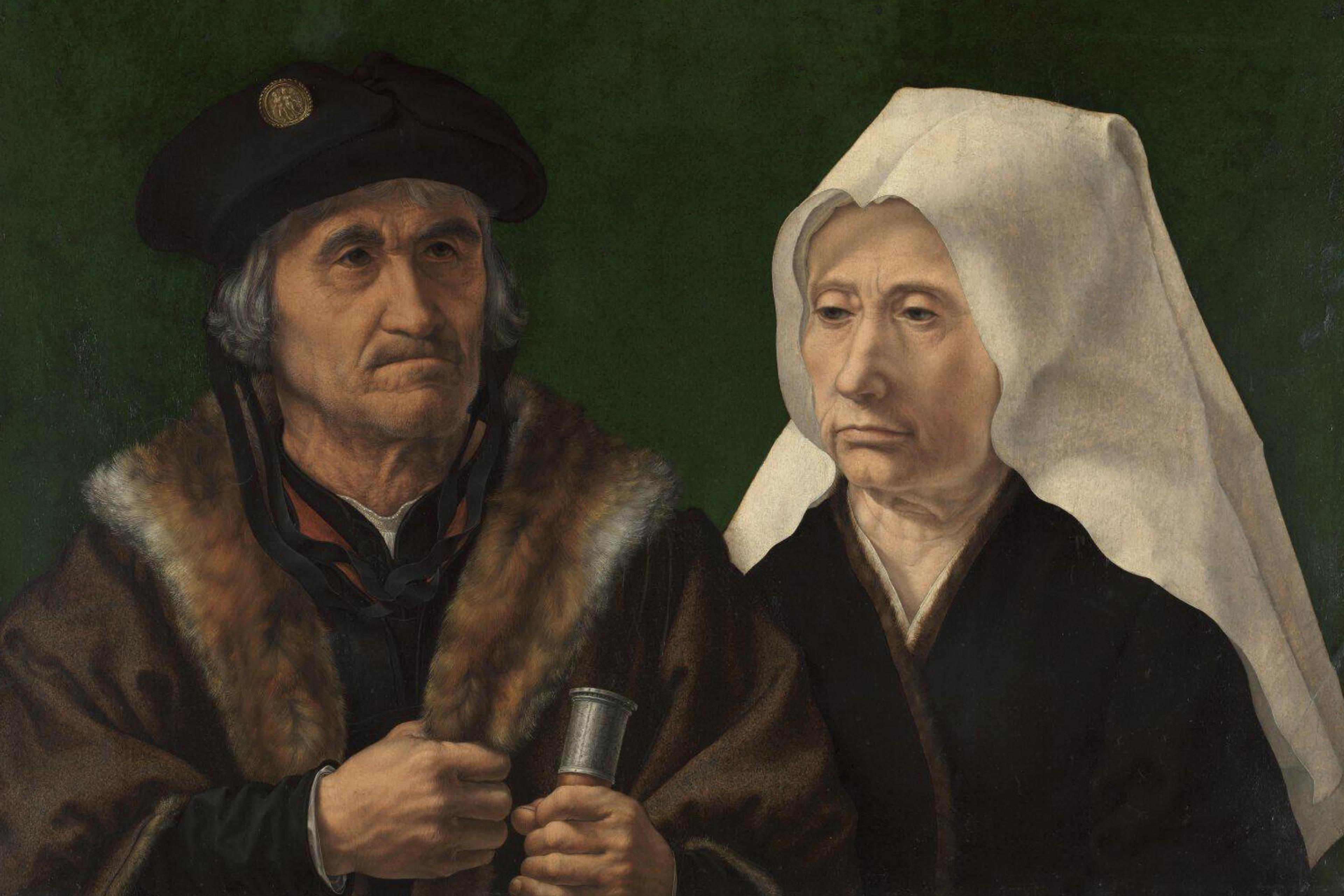Consider it a gift from God that you have experienced afflictions in love’s quarters!
– from Kulliyyat-i Shams (Divan-i Kabir) by Jalal al-Din Rumi (1207-73)
Catchy poetic quotations from the ecstatic love poetry of Rumi – purportedly, the bestselling poet of recent decades in the United States – are everywhere these days. They pepper speeches at weddings, are tattooed across the bodies of celebrities, and adorn greeting cards and the walls of retreat centres, providing comfort to brokenhearted lovers and spiritual seekers alike. Contemporary readers often misunderstand Rumi’s poetry and the Islamic spiritual context from which it emerged due to a potent mixture of highly problematic translations of his poems (the one above, and those that follow, are my own work) and the seemingly endless appropriation of his image in the modern ‘mystical marketplace’. Equally serious, though, are the misinterpretations (committed by fans and scholars alike) of the animating force of his poems: love.
What, then, do Rumi and his followers on the Sufi ‘path of love’ really mean when they say ‘love’? The answer turns out to be more radical than even the most far-fetched of modern misreadings of this erotic spiritual tradition.
No figure represents the Sufi lover-ideal as well as the Persian mystic and poet Fakhr al-Din ‘Iraqi. He, even more than Rumi, lived the life of a Sufi lover in word and deed. Born near Hamadan, in what is now modern Iran, in 1213, ‘Iraqi was a precocious child who excelled in all religious and intellectual domains. By 17, he’d become a highly regarded teacher, on his way to the top of the medieval Islamic religious world. However, this promising future swiftly evaporated following an encounter that would set the course for the rest of his life.
The fateful day began as usual, with ‘Iraqi, surrounded by a group of eager students, teaching the traditional Islamic sciences in one of the renowned mosques of Hamadan, when a group of wandering antinomian rogues or ‘qalandars’ burst into this sacred space singing carnivalesque ditties. Amid the merry commotion, ‘Iraqi spied a beautiful young qalandar youth, whose beauty ravished him and ‘burnt up his rationality’. In the days following, love overtook him, and he could think of nothing else. (Premodern Islamic societies shared with the ancient Greco-Roman world an acceptance of same-sex desire as natural.) ‘Iraqi threw away his books of classical Islamic learning and became a ‘madman’. So intense did the fires of love burn that he abandoned both his prestigious teaching position and his family in Hamadan and set out to catch up with his qalandar beloved on the road to Isfahan. Once he’d found him, ‘Iraqi spent a significant period of his young life with this group, ‘loving [that] young man’, as they wandered throughout the lands of contemporary Iran, Pakistan and India.
This love story did not end happily – ‘Iraqi loses his beloved in a storm, en route from Delhi to Somnath – yet his experience of love for another human being fundamentally transformed him. It enabled him to see the world and God in a different light. No longer did he have to rely exclusively on books or scripture for knowledge about God. He was able to cultivate a direct relationship with God, his new beloved. As ‘Iraqi’s relationship with God matured (under the spiritual direction of the great South Asian Sufi saint, Baha’ al-Din Zakariyya, whose Sufi lodge he joined after losing his qalandar beloved), he learned the ultimate divine secret of the Universe: love is all there is. Literally.
Though better known today for his poetry and love affairs, ‘Iraqi also authored an important theoretical treatise on love in Sufism, Divine Flashes (Lama’at). A landmark work, it deftly fuses Persian love mysticism with the complex metaphysical Sufism of the Andalusian Sufi, Muhyi al-Din ibn al-‘Arabi, and represents a distillation of many years of ‘Iraqi’s spiritual learning, of both the intellectual and experiential varieties.
In Divine Flashes, ‘Iraqi defines love as the unknowable essence of God, the origin of everything. Nothing in the Universe truly exists, he says, except love – it is the ultimate ‘being’ that underpins all reality:
Love flows in everything, so necessarily it is all things … There is nothing in existence except it. And if not for it, that which was manifested into existence would not have manifested. That which has manifested was manifested from love and love flows in it – it is all love.
When love created the Universe, says ‘Iraqi, it manifested itself into two forms, the beloved and the lover, which correspond to the knowable God and to humanity in the traditional creation narrative. The relationship between humanity and God is thus fundamentally one of a lover and a beloved, with love operating behind the scenes as a cosmetologist and wardrobe specialist (‘Iraqi’s words!), continually inciting passion between them through its potent catalyst: beauty.
This is the secret of the Universe and the key to spiritual advancement for Sufis on the ‘path of love’: the surest way to God is through the practice of love (‘ishq-bazi) because love is the ultimate reality.
The implications of this cosmology of love are profound. ‘Iraqi and his followers see this amatory metaphysics as the structuring principle behind all of creation – it is the root of everything. Love created the Universe and is reflected in its every atom. Humanity plays a privileged role in this system, in that human beings are deemed the most reflective ‘Earthly form’ for the beauty of love. So each person and the beauty we perceive in them is a way of seeing and loving God. We fall in love with each other because of the share of divine beauty that we perceive in each other – whether knowingly or not. As ‘Iraqi says:
Whomever you love, to whatever you turn your face, it is [God] – although you may not know it … Loving other than [God] is not improper but rather impossible. Because whatever we love, we love for either its beauty or its goodness, and both of these cannot be other than [God].
Contemporary readers tempted to read this powerful statement as an intellectual precursor to the modern free love movement should take note, since no self-respecting Sufi saint – and certainly not ‘Iraqi or Rumi – would use this erotic metaphysics as a spiritual veneer to engage in proscribed sexual acts (though plenty of less reputable ones were more than happy to). Both poets caution that we must see the body and the love it evokes as spiritual tools, not ends in themselves. As Rumi says in the second hemistich of the line quoted in the beginning:
Pass beyond Earthly forms (majazi) of love – the final destination of love is God.
Such injunctions to go ‘beyond’ embodied forms of love should not, however, be used to dismiss the potent spiritual potential of the body, as many scholars have done. Indeed, for ‘Iraqi, ritual meditation on beautiful bodies became a mainstay of his meditative practice, just like prayer. Wherever he went in life – and he travelled widely from India to Anatolia and Egypt – ‘Iraqi fell in love with beautiful young men. They were not lovers in the carnal sense; rather, their beautiful bodies were peerless meditative objects in which ‘Iraqi was able to see a bit of the divine beauty of God – his ultimate beloved – embodied, and through his love for them he could fan those flames of love first kindled in his life-transforming encounter with the qalandar youth:
Whomever I look at, I see only your [God, the Beloved’s] face –
it is you that appears to me in these idols [Earthly beloveds].
Through the beautiful bodies of his Earthly beloveds, ‘Iraqi continued to draw himself closer to God. Their flesh-and-blood bodies, in other words, were an unparalleled bridge to the divine – a deeply embodied notion of spirituality that often gets obscured in abstract and philosophical scholarly discussions of Sufism’s aesthetics.
Rumi, in the poem we began with, summarises the role of embodied forms of love on the Sufi spiritual path by comparing it to a ‘wooden sword’:
The fighter gives his son a wooden sword
So he will become a master of it and then take the sword into real battles.
Love for humans is the wooden sword –
When you become entangled at the end of love’s path, that love will be transformed into love for God.
The wooden sword, Rumi reveals, is a training implement. No one would expect a knight to learn how to wield a sword by reading about it in books. Instead, he must spend thousands of hours practising his swordsmanship to know how his sword will respond in live action. So too, Rumi wants to say, with love for God.
Accomplished spiritual seekers – true ‘lovers’ of God, as Sufis would say – must train in an embodied manner, as ‘Iraqi did throughout his life. What we learn from books, even from spiritual masters, is ultimately only intellectual knowledge. True spiritual development requires experiential learning, since words cannot do justice to the symphony of sensations and feelings that overwhelm us when we fall in love: they cannot capture that full-body rush of experiencing love at first sight; the quickening of our heart rate and the flushing of our cheeks; the heartache that weighs on our chests when we are apart; the way we lose ourselves in our ‘other half’. In Rumi’s eyes, experiencing the highs and lows of Earthly love is the best education possible to prepare the spiritual seeker for the mysteries of divine love.
In a Universe imagined as one ongoing epic love affair, the path to God runs straight through the bodies of Earthly lovers.
